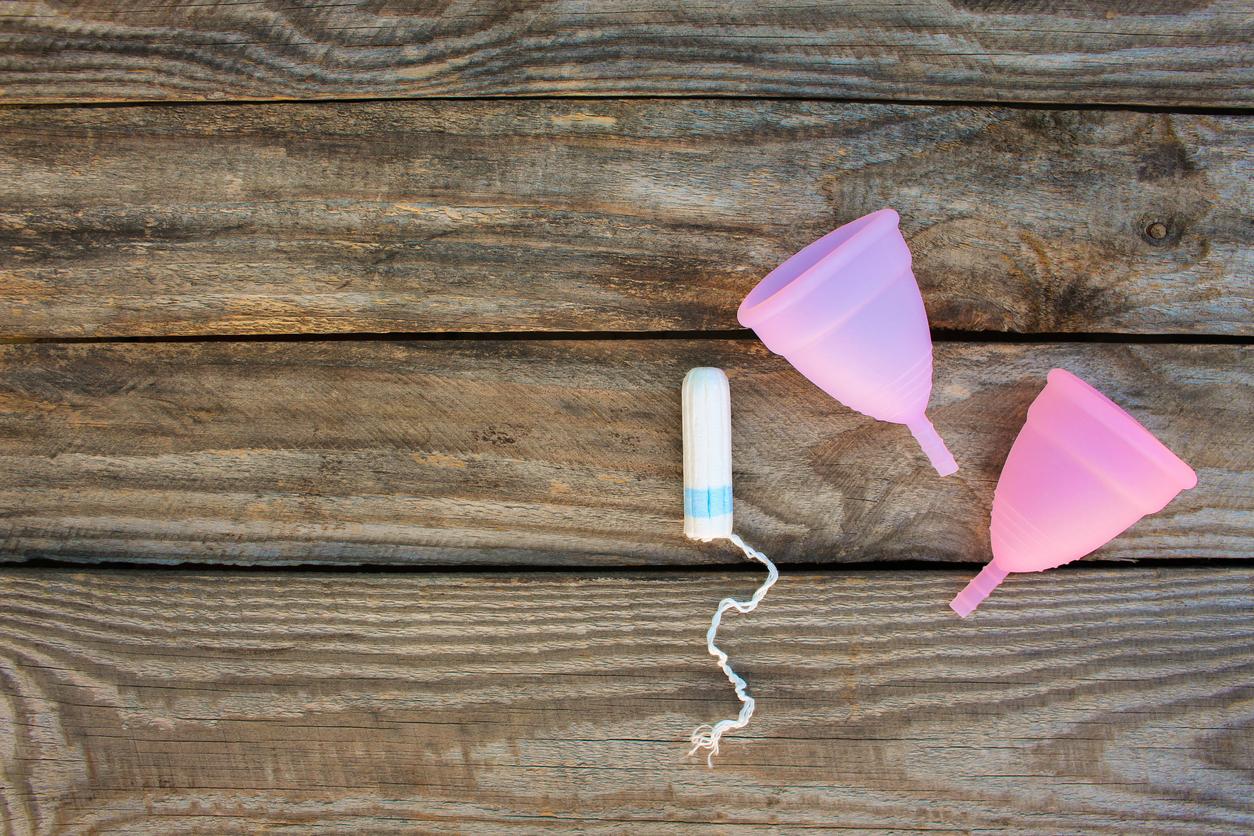Menstrual toxic shock syndrome (TSS) is rare – about twenty cases per year in France – but it can have serious consequences: it is therefore essential to know the best practices to avoid it.

- There are about twenty cases of menstrual toxic shock syndrome each year in France.
- This disorder is linked to the conditions of use of the internal intimate protections.
- The risk of developing the disease increases with prolonged use of a tampon or cup or pad with too much absorbency relative to the flow.
Menstrual toxic shock syndrome (TSS) is caused by the release of a bacterial toxin into the blood during menstruation, called TSST-1. It is produced by a particular strain of staphylococcus: Staphylococcus aureus.
“The risk of developing the disease increases with prolonged use of internal protection and/or the use of internal intimate protection with a stronger absorption capacity than necessary”warns theHANDLES. While the good weather invites you to swim or take long walks, it is important to remember good practices for using tampons and menstrual cups (or cups).
Tampons and cups: the right steps to avoid an STC
To limit the risk of suffering from toxic shock syndrome, women should adopt several good habits during their period. It’s necessary :
- Follow the recommendations for the use of menstrual protection, especially those concerning the wearing time of tampons and cups:
- 6 hours maximum,
- one protection at a time and only during menstruation,
- at night, it is preferable to use external protection such as sanitary napkins and menstrual panties;
- Wash hands before and after changing intimate protection;
- Opt for a protection with an absorbency adapted to the menstrual flow and change it regularly;
In addition, it is necessary to privilege external intimate protections to internal ones, if you have already done an STC in the past.

Toxic shock syndrome: how to recognize it?
Although this pathology is very rare, it is important to identify the disorder quickly, because toxic shock syndrome can lead to serious complications. Patients who suffer from TSS first present with non-specific symptoms such as:
- high fever (over 39°C);
- flu-like symptoms (muscle pain, sore throat);
- gastric disorders (vomiting, diarrhoea, etc.);
- a skin rash: the redness is reminiscent of a sunburn.
Since these signs are present in many diseases, the diagnosis of menstrual toxic shock syndrome can be difficult to establish.
Now, theHANDLES which warns against pathology, warns: “After a few days and without medical care, failures of different organs – the kidney, the brain, the liver, … – are observed and can lead, in rare cases, but which have already occurred, to serious complications that can go as far as amputation or even death”.
If you are thinking of having an STC, it is essential to remove the tampon or cup and then consult a doctor quickly, telling him that you are having your period and have used internal intimate protection.















